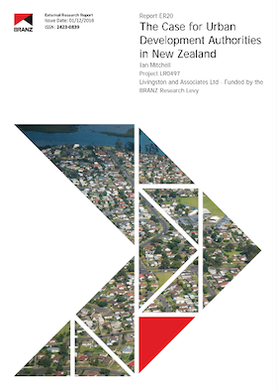
ER20 The case for urban development authorities in New Zealand (December 2016)
Product Description
Urban development authorities (UDAs) have the potential to be a valuable policy tool to assist in achieving a range of improved urban outcomes. The aim of this research is to investigate the opportunity they provide in improving urban outcomes in New Zealand with a specific focus on whether they add economic value, their financial sustainability and the wider benefits they can provide.
Key findings include that the international experience is UDAs struggle to be profitable. Overall, published reports and articles suggest they do create economic value once their wider benefits produced are taken into account. Cost-benefit ratios of between 2 and 3 are not uncommon. The wider benefits included in the analysis include uplift in values in properties surrounding the regeneration area, reflecting improved amenity and services and a range of social outcomes including improved community health.
Clear goals and objectives, benchmarks (financial, economic, social and environmental) reflecting the goals and objectives, limited political interference, realistic timeframes, adequate patient capital and a mixture of place and people-related strategies will all enhance the probability of success. It is also important to consider the counterfactual before adopting a public owned and funded UDA and whether the potential benefits exceed the costs.
Product Information
| Publication date | 1 December 2020 |
|---|---|
| Author | Ian Mitchell |
| System number | ER020 |